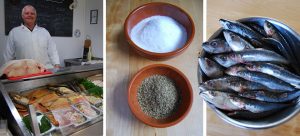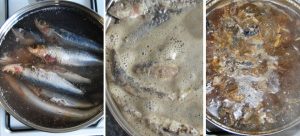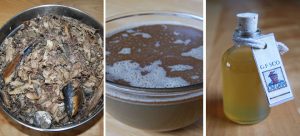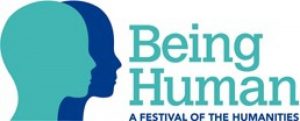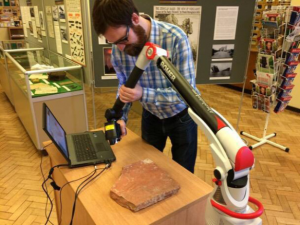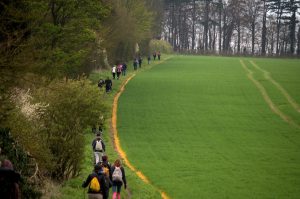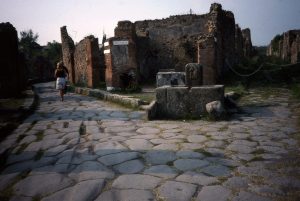Ever wondered about the value of your degree in the Humanities? Here are some answers from a panel at the University of Kent.
The Being Human Festival brought together a panel of staff and PhD students to discuss what are the Hopes and Fears running through the Humanities in 2016. Seldom do staff and PhD students sit down together and reflect on how their own research and teaching fitting into the broader context of the Humanities.
Kent’s Dean of Humanities – Simon Kirchin – opened the evening with a classic ‘Good evening everyone’ and was met with a suitable early panto-response from the audience. He went on to explain the Being Human Festival and to get all warmed up showed the short film: What is Humanities Research at the University of Kent? made for the University’s 50th Anniversary celebrations in 2015.
Then, he moved onto the panellists to consider their hopes and fears – a year on from when this film was made.
Natalia Sobrevilla Perea (Modern Languages) kicked things off explaining that in 2016 we were living in an important historical moment that increased the significance of the Humanities. That significance lay in the ability of research in the Humanities to explain and to remain ‘open’ at a time when thinking was closing down discussion. The Humanities in short – creates a space in which to explore the possibilities of openness. Her fear was that in the new scenarios emerging in 2016, the Humanities may retreat from the position that they had established in their engagement with the public.
Ulf Schmidt (History) set out how in his career in Germany, he had not had to think about or make the case for his subject – it was a given that the Humanities were valuable. He saw the film as defensive and focussed too much, perhaps, on the measurement of value via the REF (Research Excellence Framework), metrics and so on. He saw this as a fear in the Humanities that what we do is not valued. This is exacerbated at a time when a large segment of our society does not care about the distinction of truth from falsehood. iHHYet, he saw hope in the realisation that we need to realise how much the Humanities contribute to society and to explain this feature to a wider public.
Aylish Wood (Film) followed up on the defensiveness of the Humanities with regard to science and strongly advocated a means of interdisciplinary endeavour developing around the explanation of the role of technology in society. This explanation, in any discipline often depends on drawing on the narratives developed in the Humanities and the critical analysis that sets the present in relationship to the past and an imagined future. The interdisciplinary conversation around technology can also produce a fear that the Humanities only has a value within this interdisciplinary context; whereas it often reveals the hidden interdependence of Being Human in the present with that of those came before us – as seen from perspectives drawn from Architecture or Archaeology or History.
April McMahon (English Language and Linguistics) explained having only arrived on 1st September (as Deputy Vice-Chancellor), it was brilliant to listen to the panel. Being an optimist, she pointed out that the Humanities need ‘to defend without being defensive’ – thus demonstrate its value to society. She suggested that the Humanities are missing a trick: those who govern, allocate funding, and so on do not spend their evening visiting laboratories, but might be at a concert, reading a book, taking a dance class or otherwise engaging with that thing that makes us human – culture. Effectively, humanities research is routinely consumed by these decision-makers. Engagement with the consumption of the Humanities needs to go further than, for example, a simple creation of a family tree to an understanding of how family members lived and experienced ‘being human’. Her fear was that the Humanities had not been as successful as Science in the explanation of its importance. Indeed, there is an urgency to ensure that we train the next generation of researchers to undertake public and community engagement from the word go – at the very start of their PhDs.
Two of the panellists had recently submitted their PhD theses and concluded the panel discussion. Lies Lanckman (Film) explained that Kent as the UK’s European University had a responsibility to keep the conversation open at a time when, she for the first time felt less welcome in a country, where she had been resident for 10 years. Openness, she argued, was essential at a time when two opposing sides in politics may have nothing in common and the University of Kent should take on a role as a force for good. Jeff Veitch (Classical and Archaeological Studies) contemplated the need for the Humanities to influence other disciplines, rather than being the consumer of methodologies from the sciences or the social sciences, but felt the Humanities did not have a narrative to do so. His great fear is a 1 directional interdisciplinarity underpinned by a higher level of funding outside of the Humanities. To this end, he saw a need for interdisciplinarity to be embedded into the practices of teaching. Something that members of the audience saw in the development of Digital Humanities within the University.
These views prompted much discussion that lies at the very core of the Being Human Festival – how can students in say French or Archaeology or Ancient History feel that they may belong to the Humanities? Clearly, their academic identities do not encapsulate the concept of the Humanities and this may engendered by the sense of belonging to a Department or a School or a focus on the title of their degree that they study for. The Humanities needed to explain how a degree subject fitted into the bigger picture of the study of humanity. A first step is to realise that a BA is all about the study of what it is to be human.

